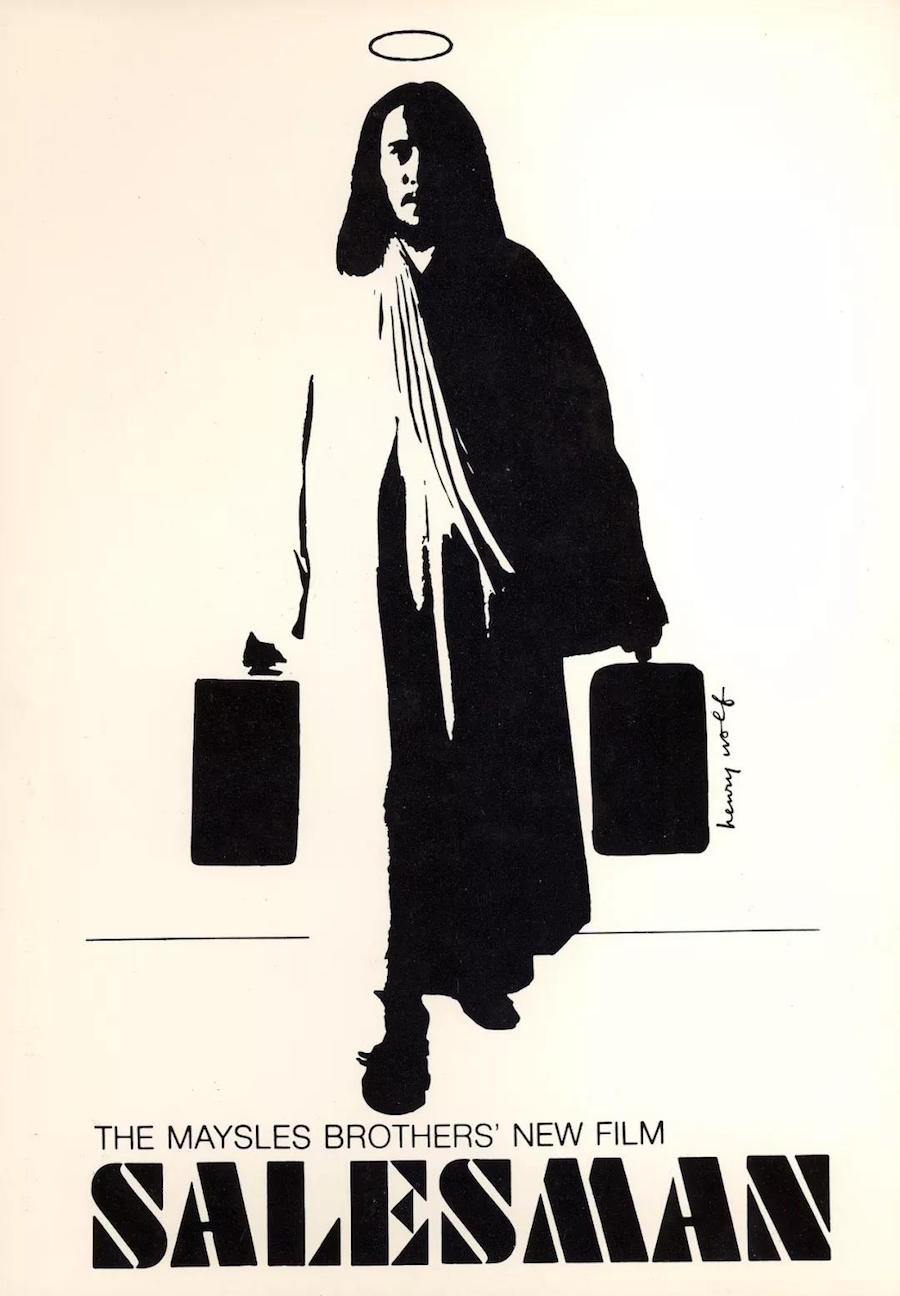A Glorious Page in Film Textbook - SALESMAN by Maysles Brothers Rescreened in 50th Anniversary
Filmgoers who know about documentaries must be familiar with the Maysles Brothers. Albert and David MAYSLES were an American documentary filmmaking team known for their work in the Direct Cinema style, with film philosophy and production methodology generating a significant influence on later filmmakers.
On the occasion of the 50th anniversary of the release of SALESMAN, the best-known work by the Maysles Brothers, the film will be presented at the 21st Shanghai International Film Festival in the new 4K digital restored format. Let\'s take a look at the difference between the documentary 50 years ago and today.
“Direct cinema is anything but a fly on the wall. You have to get in there to get what’s really going on. First of all, the cameraperson should have the confidence that their presence is not going to hurt what’s going on.”
“Fly on the wall” is a documentary style favored by Albert and David MAYSLES. They are the representatives of Direct Cinema school in the US. Albert defined documentary directors as follows: “You are an observer, an author, instead of a director, a discoverer, or a controller.”
Non-fictional, non-interference, the Maysles Brothers followed such principle and made the acclaimed SALESMAN (1968). The documentary follows four salesmen as they travel across Boston, New England and southeast Florida trying to sell expensive Bibles door-to-door in low-income neighborhoods. The film focuses in particular on salesman Paul Brennan, a middle-aged Irish-American Catholic.
In the evening, four salesmen gather in a hotel room and exchange the marketing experience of the day. What they know quite well is that most church members do not need it at all, and they cannot afford such a Bible that requires payment in installments. However, they have their ways to sell it. Facing different people, they use different marketing techniques at will, even at the expense of deceiving customers by giving them false instructions from the parish.
On the other end, at the sales conference of the Bible company, the executive was brainwashing the salesmen, telling them that “the best-selling books will not sell themselves”, “If you can’t make money, that\'s your own fault”. Every salesman must stand up and make promise about how much they will earn money next year...
At first, the four salesmen are full of ambition and see the job as a great cause. But after repeated failures, they begin to doubt their life. At the end of the film, when they gather in the hotel room once again, they look at the stacked books, and then themselves in poverty, beginning to reflect on the meaning of all this.
The Maysles Brothers cut out the final film from thousands of minutes of footage. During the shooting process, they didn\'t do anything but set up cameras and microphones — oh, they also gave each salesman USD 100 as a reward for allowing them to follow.
With the four hundred dollar, the production cost of SALESMAN is only USD 100,000, for which the Maysles Brothers paid all by themselves. The equipment they used included two 16mm cameras and a directional microphone. Sometimes a camera appeared in the lens of another, and the microphone dangled at the top of the screen. Such goofs were ridiculed by many documentary makers at the time as “unprofessional”, but the Maysles Brothers don’t care, for this is a part of Direct Cinema. They abandoned voiceovers and narration, allowing the characters to complete all tasks. They just waited for things to happen.
As a benchmarking work of Direct Cinema, SALESMAN uncovers the contemporary hypocrisy of the American Dream, and presents the life where Americans were struggling between material and spiritual values in the 1960s. This great sociological documentary work has influenced the filming style of documentary for decades to come.
If you’ve watched too many commercial documentaries with emotional background music and endless narration, take a look at the most objective and direct work born half a century ago. With 4K digital restoration technology, the classic film will give you a completely different sensory experience with a new look.











